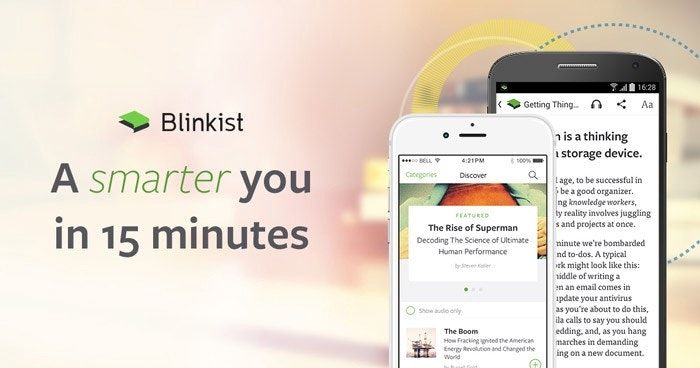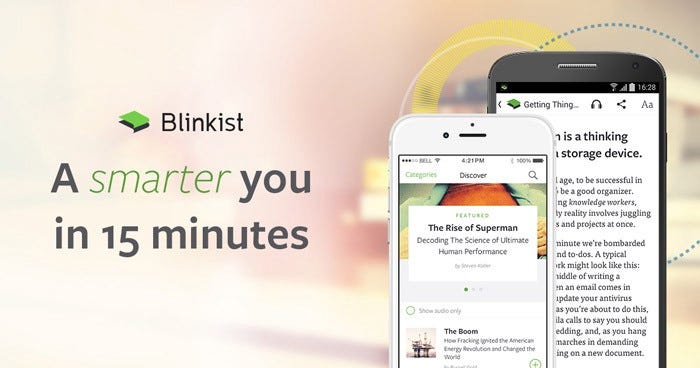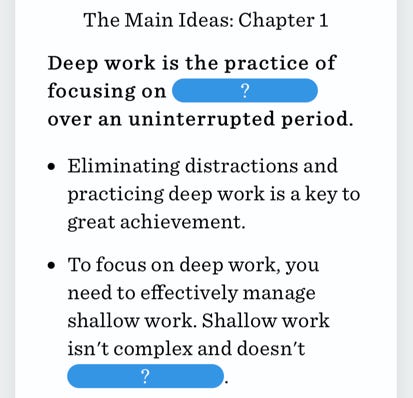The silver lining of 15-minute book summaries
There’s potential for platforms like Blinkist to nurture meaningful engagement with non-fiction books

If you remember SparkNotes or CliffNotes from high school English class, this is going to sound very familiar — the Blinkist app gives you 15-minute book summaries (text or audio) from a library of over 3,000 popular nonfiction books.

When I first heard about Blinkist, I was not a fan.
There’s no way that a quick summary can substitute taking the time to engage with a full book. At best, it gives people the illusion that they’re smarter because they feel like they’re finishing a book every day. If you asked them to elaborate on the concepts they learned a few days later, I imagine that most people would only have a vague idea.
That being said, there’s potential for platforms like Blinkist to nurture meaningful engagement with non-fiction books. Let’s explore a few possibilities.
Book previews
Before you dive into a non-fiction book, you might want to see if it’s worth reading. This is the ideal scenario for taking advantage of a 15-minute book summary — listen to the main ideas and decide whether you want to read the book.
Ideally, these summaries would actually be created by the authors themselves. Even though many people will probably never make it past the summary, it’s a great way for authors to hook readers that wouldn’t have otherwise found their book to begin with.
As an additional benefit, this will disincentivize authors who write 250-page books filled with fluff when they only really need 10% of that to get their idea across.
Built-in review
The main drawback of Blinkist is the low retention rate of concepts learned.
To counteract this, I would love to see the integration of spaced repetition — a powerful memory system that ensures retention. The basic idea is to repeatedly review a piece of information until it is committed to your long-term memory (learn more).
Lucid, a Blinkist competitor, has a feature where there’s a mini-quiz after each chapter to make sure that you’re paying attention and retaining the content.

In the future, authors might create a set of review cards that are meant to test your understanding of the book and compliment the reading experience. Even after finishing a book, these cards would occasionally be surfaced for review so that important ideas can stay embedded in long-term memory.
In summary
As our world gets increasingly digital, I imagine that authors of the future will want to provide create online experiences to accompany their physical books. Platforms like Blinkist or Lucid (or their successors) have the potential to provide authors with a set of tools to enrich the reading experience - from high-level summaries to review cards.
Friday Brainstorm Newsletter
For more, join 300+ curious people subscribed to the Friday Brainstorm newsletter. It’s one email a month with the most interesting ideas I've found related to science and health.